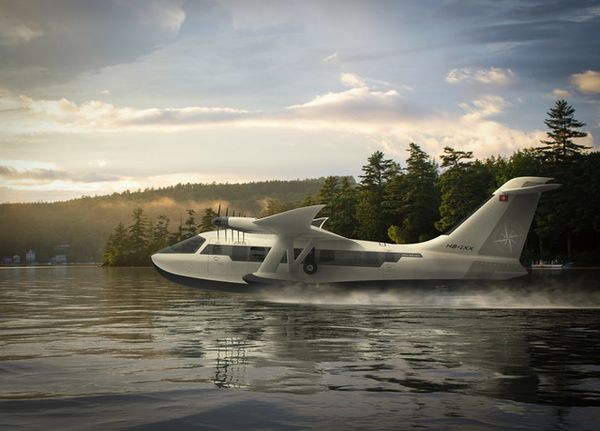The ongoing climate crisis has forced many industries to change their activities to meet net zero carbon emissions targets. The aviation industry plans to reduce emissions by introducing sustainable aviation fuel (SAF) into flights. SAF differs from traditional airline fuel because it is powered by feedstock instead of fossil fuels.

The Japanese oil company Eneos and the Australian petroleum company Ampol are planning to expand the production of sustainable aviation fuel. Both companies estimate that using feedstocks to produce biofuels could produce up to 132 million gallons of SAF per year. The new fuel will be sourced from different types of waste in the Australian state of Queensland and used for domestic and international consumption. Infrastructure currently used for refinery manufacturing will be converted into facilities that can produce biofuels.
This deal is part of Japan's ambitions to meet the increasing global demand for the decarbonization of the aviation industry. The largest Japanese airlines All Nippon Airways (ANA) and Japan Airlines (JAL) have outlined plans for SAF to comprise at least 10% of their fuel by 2030. Since Eneos is currently an oil company, this deal could present an opportunity to expand into the sustainability realm.

ANA's Vice President for procurement Hideo Miyake indicated that the deal will support ANA's mid- and long-term carbon reduction goals. This is not the first sign of investment into SAF in the Far East. Even western companies such as Boeing have begun considering an entry into the market. Perhaps this could be the first significant sign of the expansion of SAF into the global market.
NTSB: Maintenance Error Led to Citation CJ4 Gear Collapse in Baton Rouge » KLM Strengthens European Network with Three Scenic Routes » Qanot Sharq Takes Delivery of First Airbus A321XLR to Transform Central Asian Long Haul Travel »
Comments (0)
Add Your Comment
SHARE
TAGS
INFORMATIONAL SAF Sustainable Aviation Fuel Carbon-Neutral Decarbonization Net-Zero EmissionsRECENTLY PUBLISHED
 End of an Era: JetBlue's Farewell to the Embraer E190
On September 9, 2025, after nearly two decades of service, JetBlue Airways brought an end to an era with the retirement of its Embraer E190 fleet.
INFORMATIONAL
READ MORE »
End of an Era: JetBlue's Farewell to the Embraer E190
On September 9, 2025, after nearly two decades of service, JetBlue Airways brought an end to an era with the retirement of its Embraer E190 fleet.
INFORMATIONAL
READ MORE »
 Cities in the Sky: The Future Built on eVTOL Flight
Imagine stepping out of your office, walking to a nearby rooftop, and moments later lifting off vertically into the sky — no airport lines, no traffic, just a silent hop across the city. This future is no longer science fiction; it's the foundation of what could be aviation's biggest innovation since the jet age.
INFORMATIONAL
READ MORE »
Cities in the Sky: The Future Built on eVTOL Flight
Imagine stepping out of your office, walking to a nearby rooftop, and moments later lifting off vertically into the sky — no airport lines, no traffic, just a silent hop across the city. This future is no longer science fiction; it's the foundation of what could be aviation's biggest innovation since the jet age.
INFORMATIONAL
READ MORE »
 The Runway is Obsolete: Jekta Swiss is Resurrecting the Flying Boat for the 21st Century
AeroXplorer sat down with George Alafinov, CEO & Co-founder of Jekta Swiss. In conversation, he discussed the company's unique value proposition and how he sees his aircraft revolutionizing the amphibious aircraft industry.
STORIES
READ MORE »
The Runway is Obsolete: Jekta Swiss is Resurrecting the Flying Boat for the 21st Century
AeroXplorer sat down with George Alafinov, CEO & Co-founder of Jekta Swiss. In conversation, he discussed the company's unique value proposition and how he sees his aircraft revolutionizing the amphibious aircraft industry.
STORIES
READ MORE »



